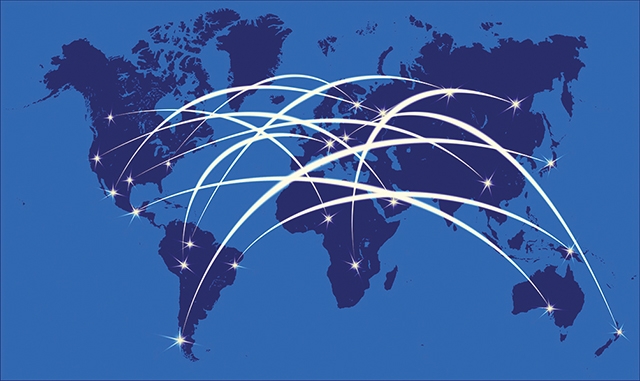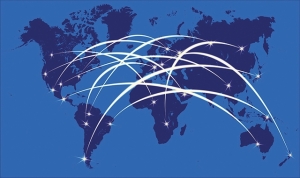38% of FDIs Attracted by Georgia in 2010-2018 Come from Offshore Countries
In 2010-2018, the Foreign Direct Investments attracted by Georgia came from those countries which have offshore territories. They amounted to $5 billion, which is 38% of the total FDIs in Georgia in 8 years.
The information was released by the non-governmental organization Transparency International (TI) Georgia, based on official statistics. According to the organization, the issue of offshore zones is relevant for Georgia as many offshore companies or their subsidiaries operate in the country.
“Today, there are about 3,000 companies registered in Georgia that are fully or partly owned by offshore companies,” TI reports. “For example, about 1,000 companies are registered in the UK offshore, there are about 250 companies registered in the Virgin Islands, 280 in Cyprus, 74 in Panama, 63 in the Seychelles, 80 in American Samoa, 12 in the Bahamas, and so on.”
It also said that most investments, $3 billion in total, came from the Netherlands and the United Kingdom, adding this does not mean that these investments solely came from the offshore territories of the mentioned countries.
“It is difficult to sort the FDI data by this criterion. With $300 million, Panama tops the list of investors of those countries that are entirely offshore zones, followed by Malta with $239 million, the Virgin Islands with $6 million, Belize with $64 million and so on,” the NGO says.
TI Georgia also stressed that in the first half of 2019, most offshore investments came from Panama, saying this was $59 million allegedly invested by the ex-Prime Minister and founder of the ruling party Georgian Dream (GD), billionaire Bidzina Ivanishvili, mainly through the Tourism Development Fund LLC.
“This company implements several projects in Georgia and is fully owned by Frankston International, a company registered in Panama. Bidzina Ivanishvili’s affiliation with this company is also confirmed by the fact that the former and acting directors of the Tourism Development Fund are persons openly connected to him. Moreover, according to the Public Registry, Tourism Development Fund and Cartu Bank are registered at the same legal address. Frankston International also owns 100% of Bidzina Ivanishvili's main investment company, the Co-Investment Fund,” the organization reports.
The NGO indicates that in October 2018, they published a study on offshore companies connected to Ivanishvili, according to which, at least 9 offshore companies and more than 70 organizations registered in Georgia are in some form affiliated with the ex-PM.
“While a politician's association with a private company, including an offshore one, is not always illegal, it is a potential source of conflict of interest and corruption, especially when all branches of government are in the hands of one party. Since offshore companies are mainly chosen to cover the real origin of money and for their low transparency, this circumstance raises additional doubts,” TI added.
In addition to this, TI says that Ivanishvili and the former Minister of Defense, Davit Kezerashvili, were mentioned in the 2016 Panama Papers. In April 2016, Transparency International Georgia published an article stating that Bidzina Ivanishvili did not include an offshore company in the asset declaration which he filled out when he became Prime Minister of Georgia.
Moreover, the study published by the NGO Institute for Development of Freedom of Information (IDFI) in 2016 reads that Russian citizens own significant capital in Georgia and control several strategic objects through companies registered in offshore zones, which include thermal and hydro power plants, fuel companies, and precious metal companies, among them Beeline and Georgian Water and Power.
“It is unacceptable for the political culture of developed countries to have such politicians which are directly or indirectly related with offshore companies. A good example of this was the Panama Papers scandal, when, for example, the British Prime Minister had to explain the sale of a 30,000 pound share of an offshore company,” the organization said.
The NGO also underlines that politicians’ links to offshore companies encourages corruption.
“Risks coming from offshore companies are higher in Georgia, as one of the major challenges facing our country today is the “high-level” corruption. Anonymous ownership of offshore companies is a contributing factor to high-level corruption,” TI Georgia added.
An offshore zone is a country or a specific territory of a country where companies enjoy special concessional terms. Lower tax rates, the secrecy of company owner, simpler financial reporting rules and ease of company registration and operations can be among such terms. Further, the owner need not be a resident of said country or have a registered office (business representation) in order to have an offshore company. This makes the offshore option ideal for those wishing to escape state bureaucracy, legal control, and taxation.
By Tea Mariamidze
Image source: premieroffshore.com












